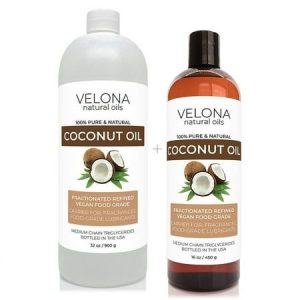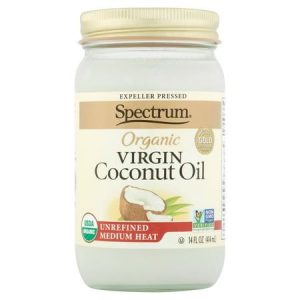
Coconut oil is a popular natural ingredient used for various purposes, including hair care. Some people believe applying coconut oil before bleaching hair can help protect it from damage. However, there’s limited scientific evidence to support this claim. This article explores the potential benefits and drawbacks of using hair oil before bleaching hair, along with safe alternatives to consider for healthier hair lightening.
Understanding Hair Bleaching
Hair bleaching is a chemical process that lightens hair color by removing pigment. It can be damaging to hair, causing dryness, breakage, and irritation. Bleaching weakens the hair structure, making it more susceptible to these issues.
Here are some important things to remember about hair bleaching:
Professional vs. At-Home:
Bleaching at home can be risky. Consult a professional hairstylist for safer and more predictable results.
Damage is Expected:
Some level of damage is inevitable with bleaching. Healthy hair is key to minimizing this damage.
Gradual Lightening:
Bleaching is often a gradual process, especially for darker hair colors. Achieve your desired lightness in stages to minimize hair stress.

Coconut Oil and Hair Bleaching: Potential Benefits
Some people believe coconut oil offers the following benefits when applied before bleaching hair:
- Moisture Barrier: Coconut oil may act as a mild barrier, potentially reducing moisture loss during bleaching. However, the effectiveness of this barrier is not well-researched.
- Scalp Soothing: Coconut oil has anti-inflammatory properties that might soothe scalp irritation sometimes caused by bleach.
It’s important to note that these are potential benefits, and there’s no guarantee they will occur.
Coconut Oil and Hair Bleaching: Potential Drawbacks
Here are some reasons why coconut oil might not be the best choice before bleaching hair:
- Limited Protection: Coconut oil may not offer significant protection against the chemical reactions of bleach.
- Uneven Bleaching: Excellent hair oil can create an uneven surface, potentially leading to patchy or uneven bleaching results.
- Conditioning Effect: Bleaching requires the hair cuticle to be lifted. Coconut oil’s conditioning properties might hinder this process, potentially affecting lightening results.
Overall, the potential drawbacks of using coconut oil before bleaching might outweigh the possible benefits.

Safe Alternatives for Healthier Hair Lightening
If you’re looking to lighten your hair, consider these safe alternatives:
- Deep Conditioning: Healthy hair is better equipped to handle bleaching. Deep conditioning treatments can improve hair strength and moisture levels before bleaching.
- Bleaching at a Salon: A professional stylist can assess your hair health, recommend suitable lightening techniques, and minimize damage during the process.
- Natural Lightening Options: For subtle lightening, explore natural lightening methods like lemon juice or chamomile rinses. However, these methods are slow and may not be effective for all hair types.
Remember, healthy hair is the foundation for successful hair lightening.
While coconut oil is a popular natural ingredient, there’s limited evidence to support its effectiveness in protecting hair during bleaching. For healthier hair lightening, prioritize deep conditioning, consult a professional stylist, or explore natural lightening options that suit your hair type.
Focus on keeping your hair healthy to achieve your desired lighter shade with minimal damage.

Safeguarding Your Hair During Lightening: Alternatives to Coconut Oil
While coconut oil is a popular natural ingredient for hair care, there’s limited research on its effectiveness for protecting hair from bleach. Here, we’ll explore some safer alternatives to prioritize healthy hair lightening:
1. Deep Conditioning Treatments:
- Deep conditioning strengthens hair and improves moisture levels, making it more resilient during lightening processes.
- Look for hair masks or treatments specifically designed for pre-lightening care.
- Apply deep conditioners according to the product instructions, typically once or twice a week before your lightening appointment.
2. Professional Hair Lightening:
- Consulting a professional stylist is highly recommended for lightening hair.
- Stylists can assess your hair health, recommend suitable lightening techniques based on your desired outcome, and minimize damage during the process.
- They can also recommend professional hair care products specifically formulated for bleached hair.
3. Natural Lightening Options (for subtle lightening):
- Explore natural lightening methods like lemon juice or chamomile rinses. However, these methods have limitations:
- Results are gradual and may take weeks or months to see a noticeable difference.
- Effectiveness can vary depending on your hair color and texture.
- These methods might not be suitable for all hair types and may cause dryness.

Remember: When considering lightening your hair, prioritize healthy hair practices. Here are some additional tips:
- Maintain a regular hair care routine: Wash and condition your hair regularly with gentle, color-safe products.
- Minimize heat styling: Excessive heat styling can damage hair. Let your hair air dry whenever possible and use heat protectant spray when using hot tools.
- Regular trims: Schedule regular trims to remove split ends, which can travel up the hair shaft and make hair look damaged.
By focusing on healthy hair practices and exploring safe lightening alternatives, you can achieve your desired hair color while minimizing damage.
Additional Tips:
- Strand test: Before applying bleach to your entire head, do a strand test on a small section of hair to see how it reacts to the lightening process.
- Patience is key: Lighter hair shades are often achieved gradually, especially for darker hair colors. Be patient and avoid over-processing your hair.
Remember, healthy hair is the foundation for beautiful hair!
For alternative lightening methods, consult a professional stylist or hair care expert for personalized advice. They can recommend safe and effective methods based on your hair type and desired results.






